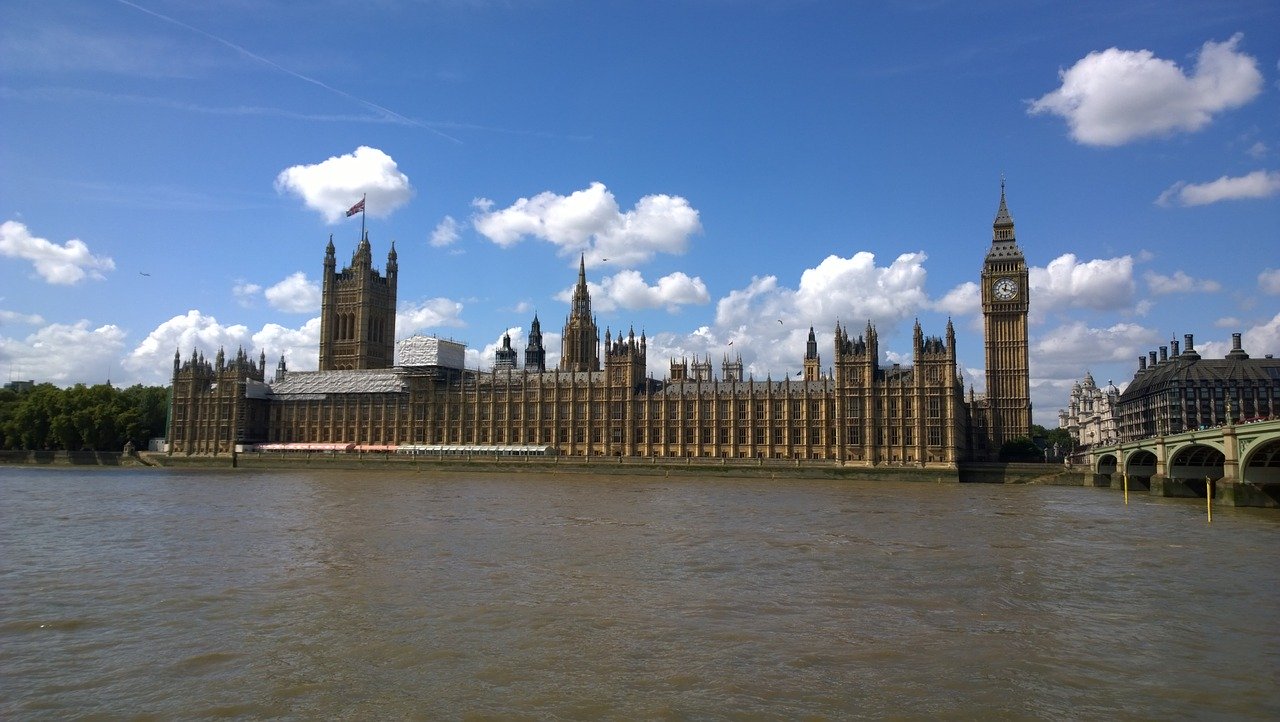‘Desperate, harmful and completely unworkable’: Sector reacts to housing association right to buy plan

The UK Government’s plan to extend the Right to Buy (RTB) their home to all housing association tenants in England is a “retrograde step” that could erode the supply of affordable housing, it has been warned.
In a speech made in Blackpool yesterday, Boris Johnson said he would “deliver the long-standing commitment, made by several governments, to extend the right to buy to housing associations”.
The proposal, an updated version of Margaret Thatcher’s programme in the 1980s which allowed families to buy properties from councils, is intended to give the three million households in England who rent properties from housing associations the power to purchase their homes at a discounted price, depending on how long they have lived in the property. The right to buy will be capped at a level that is within the government’s existing spending plans.
Speaking in Blackpool the prime minister said: “Over the coming months we will work with the sector to bring forward a new Right to Buy scheme. It will work for tenants, giving millions more the chance to own their home.
He added: “It will work for taxpayers: responsibly capped at a level that is fully paid for; affordable within our existing spending plans, and with one-for-one replacement of each social housing property sold.”
He also set out plans to change rules on welfare so that working people in receipt of housing benefits can use their benefit towards a mortgage.
With the potential to affect over three million households in England, the new “benefits to bricks” policy will additionally enable young people to pass affordability checks needed to get a mortgage.
Although the policy would not come into force in Scotland, where the right to buy was abolished in 2016, leading figures in the social housing sector have described the move as a “retrograde step”.

Callum Chomczuk
Callum Chomczuk, national director at CIH Scotland, said: “The right to buy in Scotland lead to a huge reduction in social rented homes and contributed to growing intergenerational inequality in terms of access to affordable quality housing.
“Conversely, the ending of this policy in 2016 has incentivised local authorities to develop more affordable, energy efficient homes for those who need them most. We are now seeing a growth in social sector stock for the first time in decades.
“CIH Scotland is delighted that Scotland is not considering the retrograde step of reintroducing or extending this policy. Homeownership is a legitimate aspiration for individual and government policy but it should not be funded at the expense of social housing.”
Aaron Hill, director of policy and membership, Scottish Federation of Housing Associations (SFHA), said: “SFHA long campaigned for – and welcomed – the end of the Right to Buy in Scotland. Half a million homes in Scotland’s social housing sector were lost in the 30 years of the policy.
“What made this policy so harmful was that, while in Scotland, receipts from the sale of the homes were re-invested into providing affordable housing, the generous discounts meant this didn’t cover the cost of building a new home. Right to Buy, therefore, benefitted a comparatively small number of individuals at the expense of increasing access to affordable high-quality homes and tackling housing need.
“We are pleased to see the Scottish Government confirm that it will continue to protect social housing for future generations in Scotland, working with housing associations and local authorities to build many more social homes.”

David Bookbinder
David Bookbinder, director of the Glasgow and West of Scotland Forum of Housing Associations, added: “The desperate and purely political decision on the right to buy housing association homes in England reminds us how much more robust the approach is in Scotland, more than 20 years after the ill-conceived attempt by the first Scottish Executive to extend the right to buy here.
“Even with RTB abolished, we still have huge housing supply challenges in Scotland, but at least we aren’t selling off homes in the completely unstrategic way that the right to buy invariably entails.”

Craig Stirrat
Craig Stirrat, the chief executive officer at Grampian Housing Association Group, said: “I consider the proposed extension of the RTB scheme in England to housing associations as short-sighted popularism - if there was an oversupply of quality homes at social rent levels (as opposed to ‘affordable rents’ equivalent to our mid’market) then perhaps it would be acceptable to try and achieve more balanced communities- and the Treasury would clear any residual debt from sales - but clearly there isn’t and the treasury are unlikely to do so.
“Naturally as happened in Scotland before the RTB was abolished - what will happen is most of the best stock in the most desirable areas (with probably the least affordable homes) will be snapped up / causing further residualisation of the social rented sector - compounding the view amongst part of the population that social housing is a choice of last resort!! I could go on….”
Mr Stirrat added: “I note also that lenders to RSLs in England have not been consulted on the risk to their securities over RSL properties if subject to RTB- plus will RSLs invest rental income in upgrading properties to net zero - if they are then subject to sale? Will those that then exercise their right to buy using benefits then have the capital to bring their home up to EPC level “c” as required in England- the costs continue to outweigh the pros.”
There are reservations south of the Border too. Stonewater manages around 34,500 homes in England for over 76,000 customers, including affordable properties for general rent, shared ownership and sale, alongside specialist accommodation.

Nick Harris
Its chief executive Nicholas Harris said: “We have recent experience from the pilot of this Right to Buy extension in the Midlands. This showed that giving customers the opportunity to buy the home they have invested in, both financially and emotionally, can be hugely positive. But I’m not without reservations on this latest plan.
“We are in the middle of a cost-of-living crisis with people facing a choice between heating or eating. Extending the Right to Buy will diminish the supply of affordable homes available to hard-pressed families. I question whether this policy is the right use of scarce resources at this time when it won’t provide additional homes for the people that need them most.
“It is encouraging to hear the government commitment today that homes sold will be replaced like-for-like. In the Midlands pilot, we were able to replace homes 1:1.65. But this relied on us using Stonewater resources to build modern, affordable homes and not necessarily where they were sold. Without sufficient government funding it will be virtually impossible to build replacements and increase the overall supply of affordable homes as needed.
“The world has moved on from the days when home ownership was the panacea to all housing ills. We need to look beyond that and truly understand what housing security looks like for today’s generation – and those of the future. Let’s be more innovative about how we can use housing to best help people achieve their goals and dreams.”
Sovereign CEO Mark Washer said: “At Sovereign we understand that people aspire to own their own home – indeed we are committed to support people to do just that, whether that’s through shared ownership or by providing them with an affordable home to rent that allows them to save for a deposit. But right to buy for housing association tenants is not the right answer and risks exacerbating the housing crisis.
“We will look closely at the detail as it emerges, but as an organisation that participated in pilot’s the last time the government tried this policy out we know how hard it is to deliver on its promise. It runs the risk of costing the taxpayer a huge amount of money for very little return.
He added: “In the current economic environment, facing labour and material shortages, it is already a challenge to build the homes we need – especially the affordable homes. The prime minister has said that every house sold will be replaced on a one-for-one basis – we must hold his government to that promise. If right-to-buy offers homes to housing association tenants at a significant discount, then it must not do so at the expense of families waiting for an affordable home of their own.”
Homelessness charity Crisis warned that the policy is completely unworkable. It highlighted the UK Government has frozen housing benefit for the last two years. Additionally, households on Universal Credit can save up to £16,000 as it stands but once they hit this threshold, they are no longer eligible for Universal Credit.
Assuming households need to save a 15% deposit, this would enable them to buy a property for £107,000. The average house price now £278,436 and the average house deposit sitting at £61,000.
With over one million people languishing on social housing waiting lists, and over 96,000 households trapped in temporary accommodation, Crisis is also concerned that resurrecting the Right to Buy scheme will only further exacerbate the housing crisis. Last year, only 5,955 social homes were built in England.
Crisis’ research shows that 90,000 social homes need to be built each year for the next 15 years to meet the demand required.
Kiran Ramchandani, director of policy and external affairs at Crisis, said: “This ill-conceived announcement is the exact opposite of what we need to tackle the mounting housing crisis. For decades our social housing stock has been stripped bare, while over 96,000 people remain trapped in dingy B&Bs having given up all hope of ever moving into a home of their own. The notion that we’ll now sell off what little affordable housing we have left will only serve to make this situation worse.
“The reality is that with housing benefit currently frozen, it’s barely enabling anyone to rent as it is. To suggest this money can now be used to secure mortgages without a costly investment to the benefits system is an utter fallacy. Moreover, it seems the Government is intent on creating a two-tier system where only working households will be able to use their housing benefit towards a mortgage payment, disregarding people with disabilities and those unable to work.
“The only way to fix our broken housing system is to build more social homes which people can afford – we urge the Government to get on with doing this if we’re ever going to end homelessness for good.”

Polly Neate
Polly Neate, chief executive of Shelter, said: “The solution to the housing emergency is staring the government in the face: a new generation of well-built, green social homes.
“Social housing with rents tied to local incomes is what this country is crying out for.”
She added: “The Prime Minister and his government should commit themselves to building much more social housing before pushing ahead with any naive plans to extend Right to Buy that risk wiping out what little is left.”
Cllr David Renard, housing spokesperson for the Local Government Association, said: “Owning your own home is an important step for many people, and an extension of the Right to Buy scheme to housing associations tenants could enable many more to get on the housing ladder.
“However, measures that support homeownership should not lead to any reduction in the overall number of affordable social rented homes. Any houses sold must be replaced quickly, in the same local authority area and on a like for like basis. Equally, the cost of discounts must not be funded from the sale of council housing stock, nor be met from existing government funding commitments for delivery of additional affordable homes.
“The Right to Buy scheme for council tenants also needs urgent reform and councils need to be able to keep 100 per cent of receipts and set discounts locally. The number of new council homes being built is not able to keep pace with those sold under Right to Buy, and the discounts available, along with the funds that have to be returned to Treasury, are leaving councils with less and less resources to catch up.
“With over 1.1 million households currently on social housing waiting lists, any loss of social rented housing would risk pushing more families into the private rented sector, as well as driving up housing benefit spending and rents and exacerbating our homelessness crisis at a time of an escalating cost of living crisis. We need to be urgently increasing, not reducing the supply of affordable social homes.”
Lawrence Bowles, director of research at Savills, added: “Every iteration and pilot of Right to Buy has failed to replace the number of affordable homes lost.”
He said that if Right to Buy is extended further, the supply of affordable housing could be eroded.
Mr Bowles said: “This comes at a time when supply is already likely to fall, as housing associations switch their focus from building new homes to making their existing homes safe and more energy efficient.
“If the government is serious about getting more people into home ownership it could consider extending Help to Buy beyond 2023.
“While the policy hasn’t been perfect, it has helped just shy of 300,000 households on to the housing ladder for the first time.”










